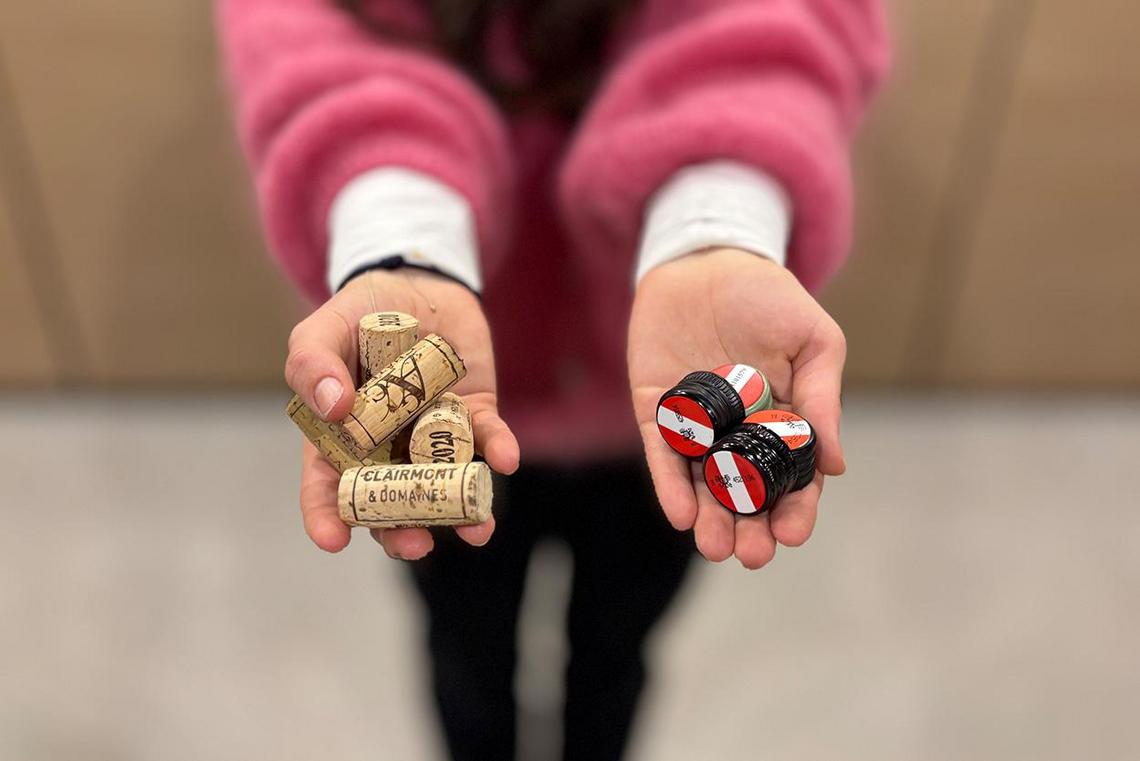The topic of “cork or screw cap” for wine is still the subject of passionate and often very emotional discussion in the wine industry and among wine lovers today, 20 years after the widespread introduction of screw caps in Austria.
Press
Screw caps vs. natural corks in wine

From a consumer perspective, the advantages of screw caps are primarily easy re-sealability and the risk-free storage of lying bottles in the refrigerator. Proponents of natural corks often mention the aesthetics and festive nature of uncorking a wine bottle. In addition, it is repeatedly pointed out that cork should be used for prestigious wines that are to mature in the cellar for a long time. From the producers’ point of view, the significantly lower price of the screw cap, as well as the risk of contaminating their own wine with a cork defect caused by trichloroanisole (TCA), which can never be ruled out, play important roles.
In his bachelor thesis, Sven Patrick Wessel, BA, a graduate of the International Wine Business programme at IMC Krems, examined the influence of different bottle closures – natural cork and screw caps – on the chemical and sensory properties of Austrian wines. The thesis was supervised by Programme Director Prof. (FH) Dr. Albert Stöckl.
The study, which was conducted in collaboration with the Federal Secondary College and the Federal Office for Wine and Fruit Growing (HBLA and BA) Klosterneuburg and the BOKU University Vienna, analysed the chemical stability, freshness and aroma of 23 Austrian wines from all four wine-growing regions: Lower Austria, Burgenland, Styria and Vienna. A total of 46 samples were examined, as each wine was bottled with both a natural cork and a screw cap.
Scientific precision: chemical and sensory analyses
The chemical analyses focused on parameters such as sulphur dioxide content, acidity and alcohol. The results showed only minimal differences between the closure types, indicating that the chemical stability of the wine is largely independent of the closure.
However, sensory tests conducted with an expert panel consisting of IMC Wine Business lecturers, winemakers and retailers revealed subtle differences in taste. White wines with screw caps tended to be perceived as fresher and more acidic, while natural cork made the wines appear rounder and somewhat stronger. Similar effects were observed in red wines: screw caps preserved freshness better and made it appear more vibrant.
In a direct comparison, the screw cap “wins”
In the blind tastings conducted by the expert panel, there was a preference for the screw cap: 60.8% of the tasters preferred white wines with screw caps in a direct 1:1 comparison, and for red wines the figure was as high as 69.1%. It should be emphasised that mainly aged wines were available for tasting. Wines from the 2003, 2004, 2005 and 2010 vintages were available. Only two wines were really young (2021 vintage).
The results show that, even when stored for a long time, the closure does not cause any significant chemical differences, but it can influence sensory perception and thus consumer preference. The results also refute the assumption that wines with screw caps do not age as well or that wines with cork develop better or more “beautifully”.
